
Tsuneyasu Miyamoto, the Japan Football Association's new president, speaks at a news conference on March 23, 2024, in Tokyo. (KYODO)
As a soccer player, coach and administrator, Tsuneyasu Miyamoto gained valuable leadership experience in a variety of roles over the past few decades.
Now at age 47, he's become the first former player to compete in the J.League and in FIFA World Cup matches to be appointed president of the Japan Football Association.
Miyamoto's two-year term as the 15th president of soccer's national governing body in his homeland began on March 23.
The Osaka Prefecture native succeeds Kozo Tashima, 66, who held the post from 2016-24.
Before outlining his goals and the shared vision of past leaders as the JFA's new chief executive, Miyamoto said he's "extremely honored" to be named the new president. He added that he considers this a leadership position of "great responsibility."
"Throughout my career, I have always been driven by a strong desire to increase the presence of football in our country," said Miyamoto, who joined the JFA Executive Committee in 2022. He took over as general secretary in 2023.
"It has been more than 100 years since JFA was founded and more than 30 years since a professional football league was established in Japan. [And] it is through the tireless efforts of so many people, on and off the pitch along the way, that have brought Japanese football to what it is today ― a journey of growth that we can all be proud of, even by world standards.
"Stadiums have been built across the country, J.League and WE League matches are played on weekends, and it has become a common sight to see the whole country cheering on the performance of Samurai Blue (Japan national team) and Nadeshiko Japan (Japan women's national team)."
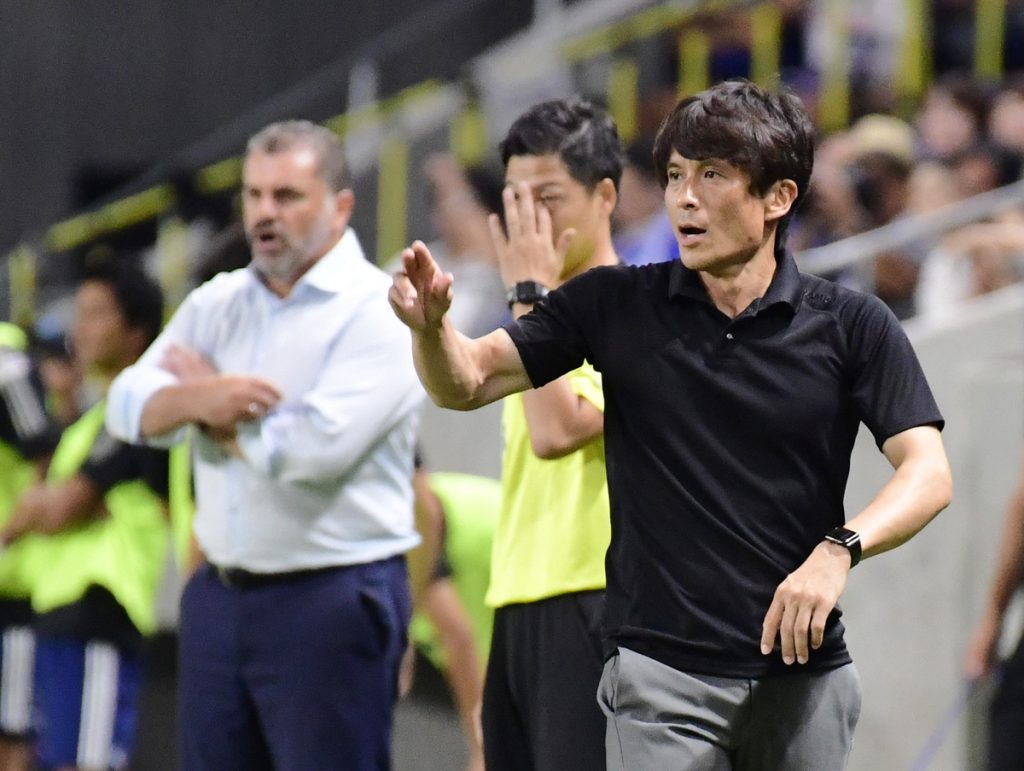
Tsuneyasu Miyamoto Outlines Ambitious Goals for the Next Few Decades
Miyamoto reiterated past goals outlined by the JFA in his opening message as president: to host the World Cup for a second time by 2050 and to win it for the first time by that year.
"We must take further steps to elevate our game to the next level," Miyamoto commented. "While inheriting the wide array of legacies built by our predecessors, we must also take an innovative approach that is fit for the present.
"There are many things I would like to work on. Through close dialogue and discussions with you all, I will explore the best way forward one by one, in order to increase the presence of Japanese football both at home and abroad. Let's work together to start a new chapter for Japanese football."
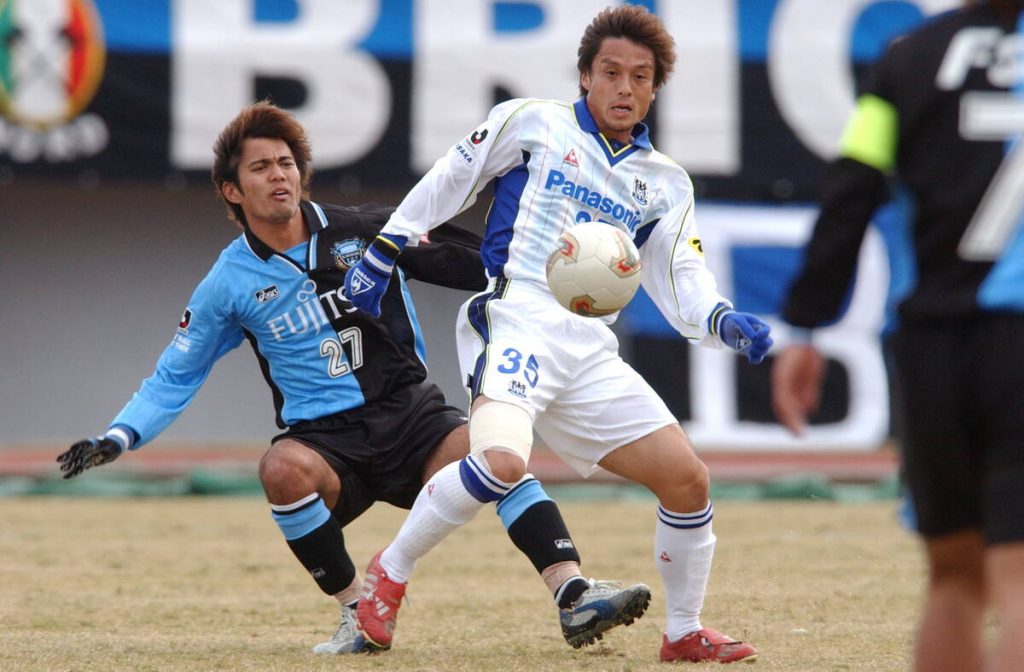
Tsuneyasu Miyamoto: Career Background
A center back, Miyamoto stepped in as a replacement captain at the 2002 FIFA World Cup on home soil after Ryuzo Morioka sustained an injury in Japan's opening game against Belgium at Saitama Stadium. Morioka was forced to miss the rest of the tournament. Miyamoto helped lead Japan's run to the round of 16.
Looking back on that experience 20 years later in June 2022 in an interview with FIFA.com, Miyamoto recalled his teammate's injury and being called upon to replace him.
"I don't think many defenders get substituted during a game. When Ryuzo went down, I wondered if he'd been injured," Miyamoto told FIFA.com. "At that time, I'd been quietly watching from the sideline. I actually realized that I would get on the pitch only when the coaches called me over. The head coach (Philippe Troussier) gave me some instructions before I went on, but I didn't remember much of what he said."
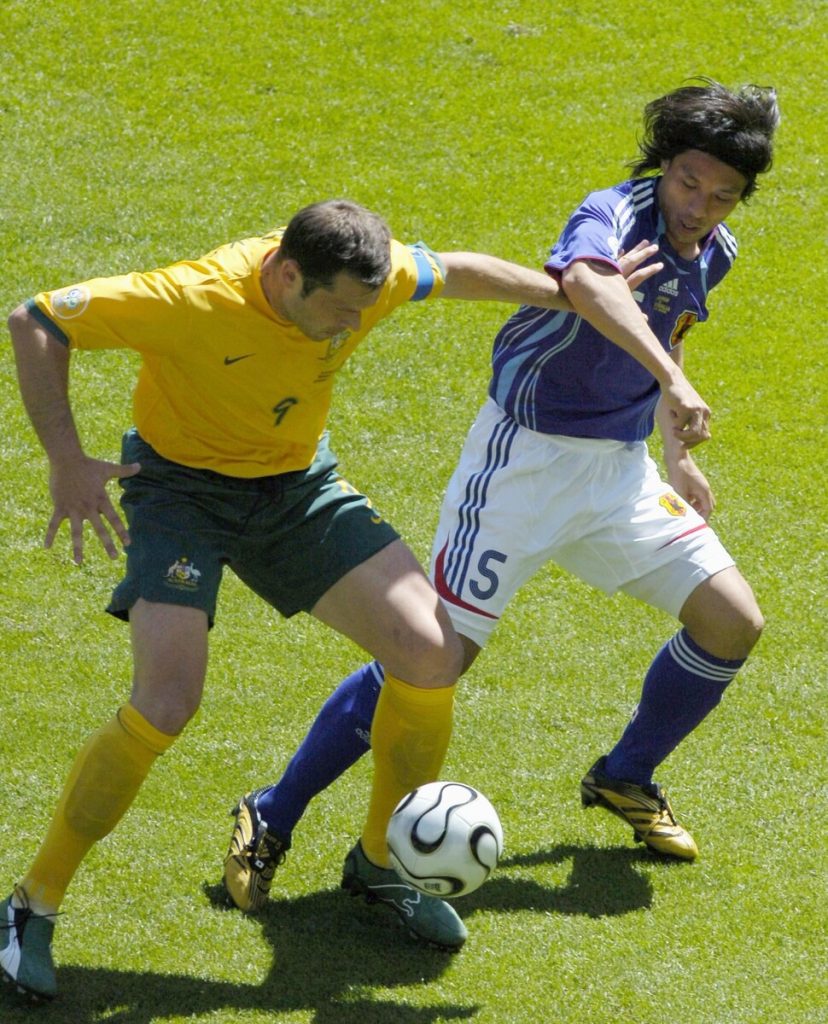
Miyamoto's playing career included stints at Gamba Osaka (1995-06, including a J.League title-winning season as captain in 2005), Red Bull Salzburg (2006-09) and Vissel Kobe (2009-11). He earned 71 caps as a national team player and continued his role as Samurai Blue captain at the 2004 Asian Cup and through the 2006 FIFA World Cup in Germany.
Miyamoto later served as Gamba manager from 2018-21.
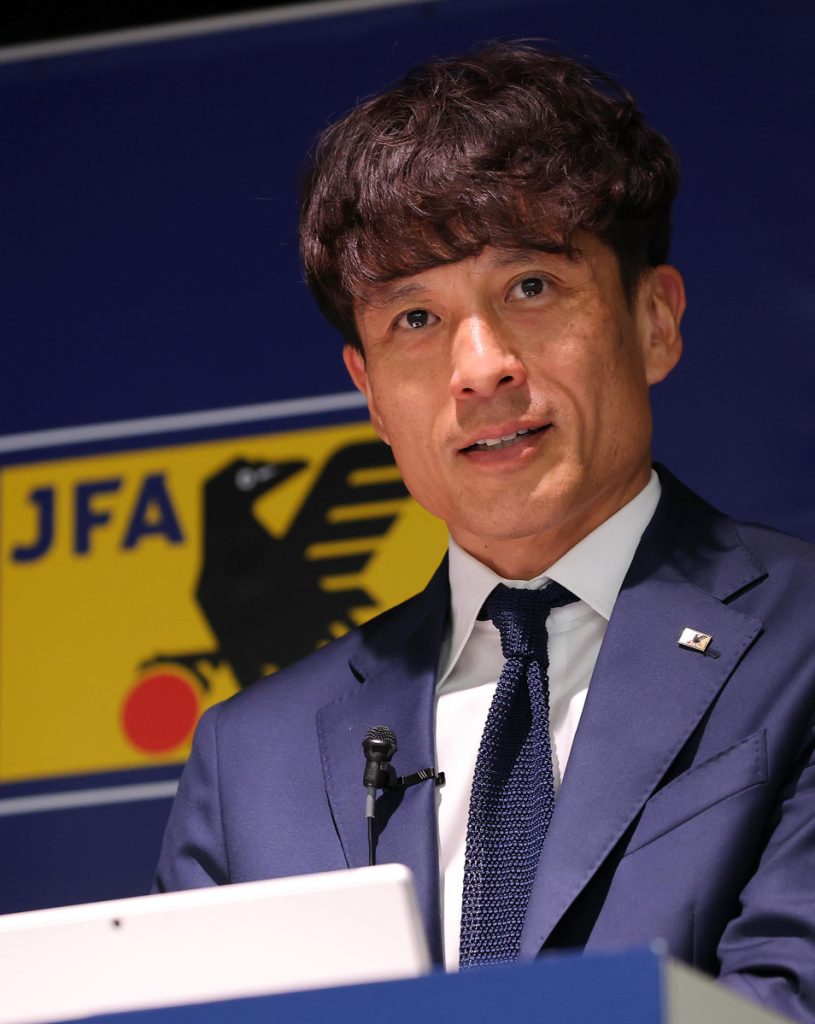
The Impact of the 2002 World Cup
The aforementioned FIFA.com interview took place shortly after his Gamba management stint. In it, Miyamoto was asked how the 2002 World Cup impacted his career and how it influenced the way he approached coaching years later.
"The World Cup allowed me to experience what a team on the big stage should do to smoothly execute what they practiced," Miyamoto said, according to FIFA.com. "I also learned how, among other things, we can alleviate pressure when playing at a major tournament."
He added, "I try to pass on those experiences to the young players in my team."
During his presidency, expect Miyamoto also to share insights gleaned from his years as a youth coach, a FIFA Master graduate student and a frequent interviewee by media.
RELATED:
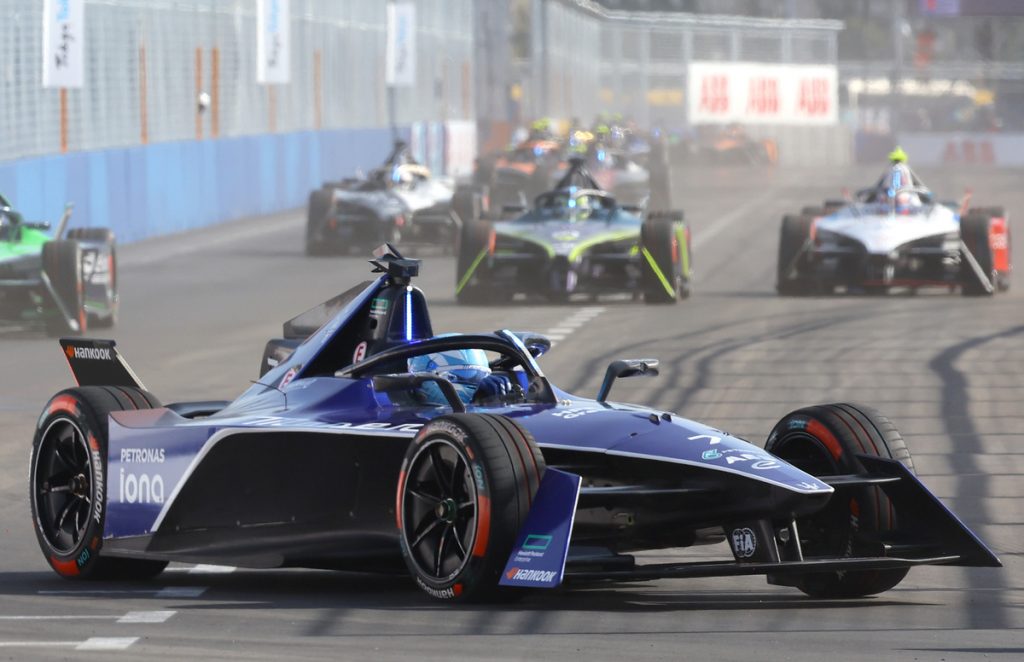
Auto Racing
Maserati's Guenther Wins the Inaugural Tokyo E-Prix
German driver Maximilian Guenther, who races for Maserati, triumphed in Formula E's first-ever Tokyo E-Prix on Saturday, March 30.
The win came after ninth-place finishes in the electric car circuit's previous two races on March 16 and 27 in Sao Paulo, Brazil, and Diriyah, Saudi Arabia.
Pole-sitter Oliver Rowland of the Nissan Formula E Team (aka Nismo), finished second (0.755 seconds off the pace) and Andretti's Jake Dennis placed third.
"I think we executed the race pretty well, the strategy was good," Guenther told reporters, according to The Sports Network after his victory, "and I pulled off a few good moves to move up and then we defended against Ollie right up until the last lap. It was pretty tight, it definitely wasn’t easy; I think I just surprised him in Turn 10."
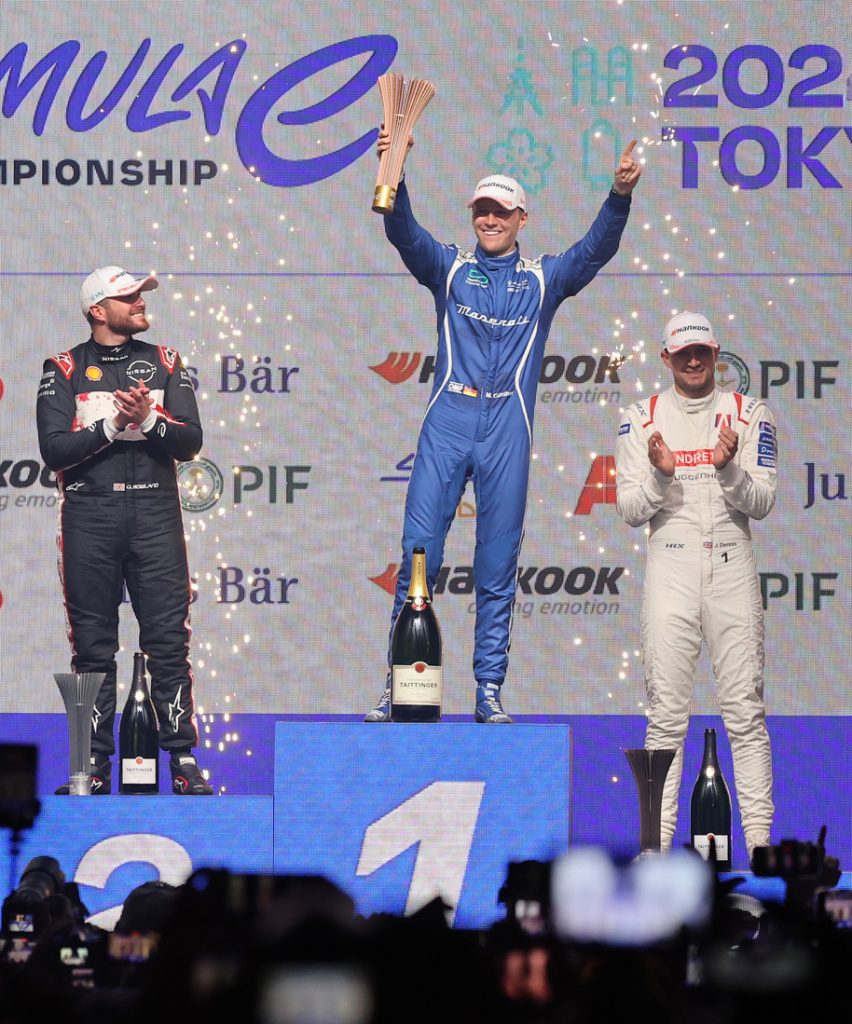
Guenther, who now sits in fifth place in the 2023-24 Formula E driver season standings, completed the race in 54 minutes, 34.665 seconds. He moved past Rowland on the 24th of 35 laps as "energy levels became critical, and fended off the Briton, who made three attempts to pass, to the checkered flag in a race against the backdrop of Tokyo Bay," Reuters reported.
The Nissan Global Newsroom report described Rowland's in-race tactics this way: "[He] dropped to second in an effort to save energy, attacking for the win in the final laps."
Although Rowland didn't achieve his top goal, Saturday's race produced his third straight podium finish. He was third in Brazil and Saudi Arabia.
Nismo teammate Sacha Fenestraz placed 11th in the 21-car race.
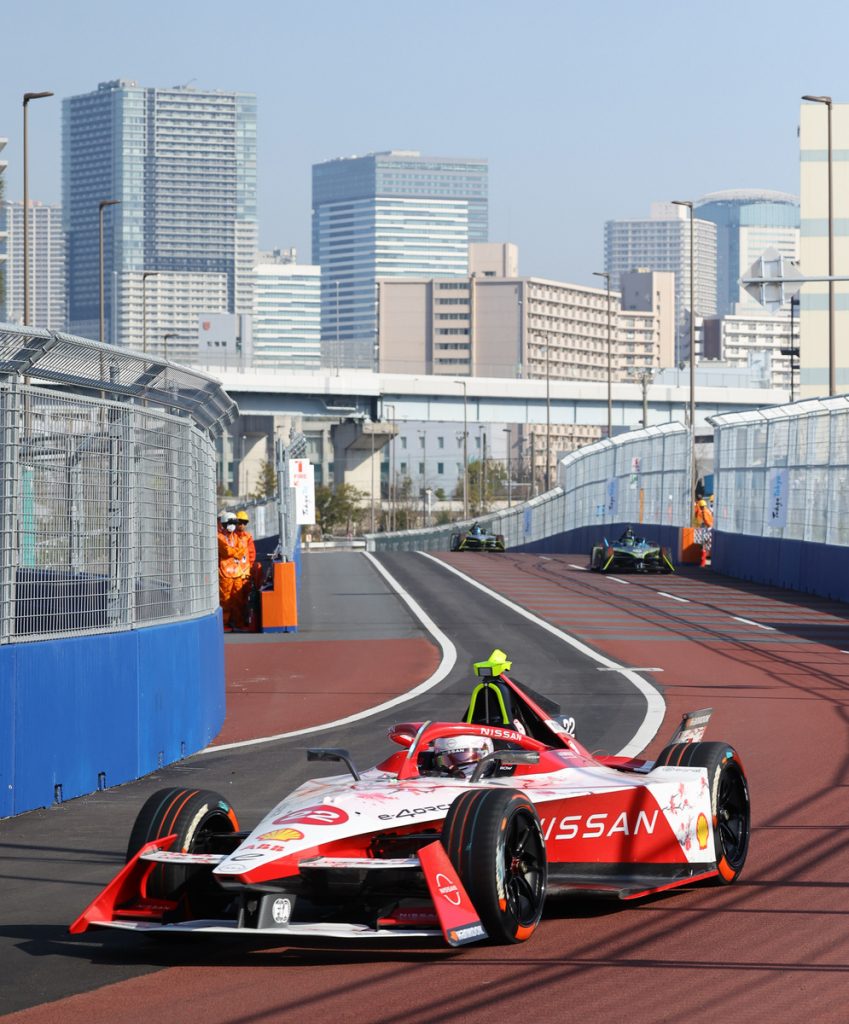
Insights from Runner-Up Rowland After the Race
"I'm really happy with the performance and the result this weekend," Rowland said. "To take our second pole of the season and third podium in a row is amazing, especially to do it at our home event.
"Naturally, having led most of the race, I'm a bit frustrated not to have gotten the win."
Discussing his strategy after conserving energy for the end of the race, Rowland said: "[I did] everything I could in the last few laps to get the position back, but in the end it was just too risky and I couldn't make the move. The car was great, we knew we had the pace, especially in qualifying."
What other impressions did he have about the inaugural Tokyo E-Prix?
"The track was awesome, a big challenge for the drivers and I really enjoyed being out there," Rowland said. "It was also amazing to have so much support here, so a big thanks to the Japanese fans for cheering us on."
Rowland is currently in third place in the Formula E driver standings with 54 points, trailing only Jaguar's Nick Cassidy (61 points) and Porsche's Pascal Wehrlein (63). Reigning overall champion Dennis is fourth (53), while Guenther is fifth (48).
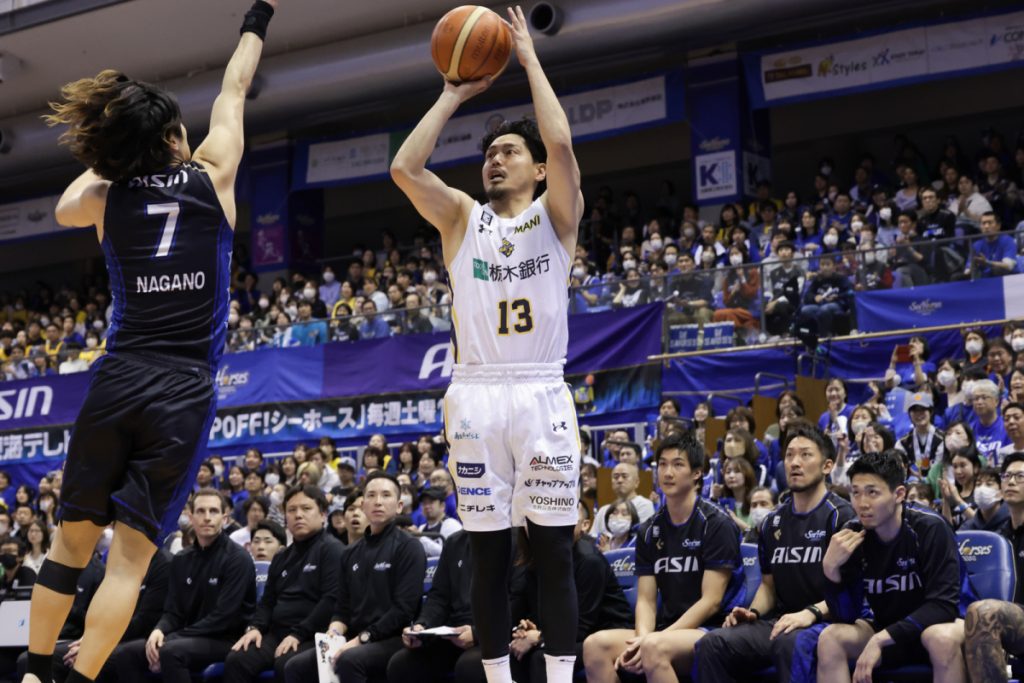
Basketball
Utsunomiya Brex Become First B.League Team to Reach 40 Wins This Season
On Saturday, March 30, the visiting Utsunomiya Brex collected their 17th straight victory, by beating the SeaHorses Mikawa 88-78.
As a result, the Brex (40-7) are the first B.League team to reach 40 wins in the 60-game 2023-24 season.
American-born power forward Grant Jerrett paced Utsunomiya with 23 points on 9-for-14 shooting and veteran guard Hironori Watanabe knocked down 6 of 7 3-point shots in a season-high 18-point effort.
The score was tied 61-61 entering the fourth quarter.
"It was a very difficult match, but each player made big shots, and I'm glad we were able to control it and win," Watanabe told reporters after the game.
Said Jerrett: "I'm glad we were able to win a tough game. We went into the final quarter with the mindset of doing whatever it took to win."
After a 77-70 home triumph over the Sunrockers Shibuya on March 3, the Brex won their next five games by margins of 22, 27, 21, 16 and 23 points before meeting the SeaHorses in the series opener on Saturday. The teams were set to play again on Sunday in Kariya, Aichi Prefecture.
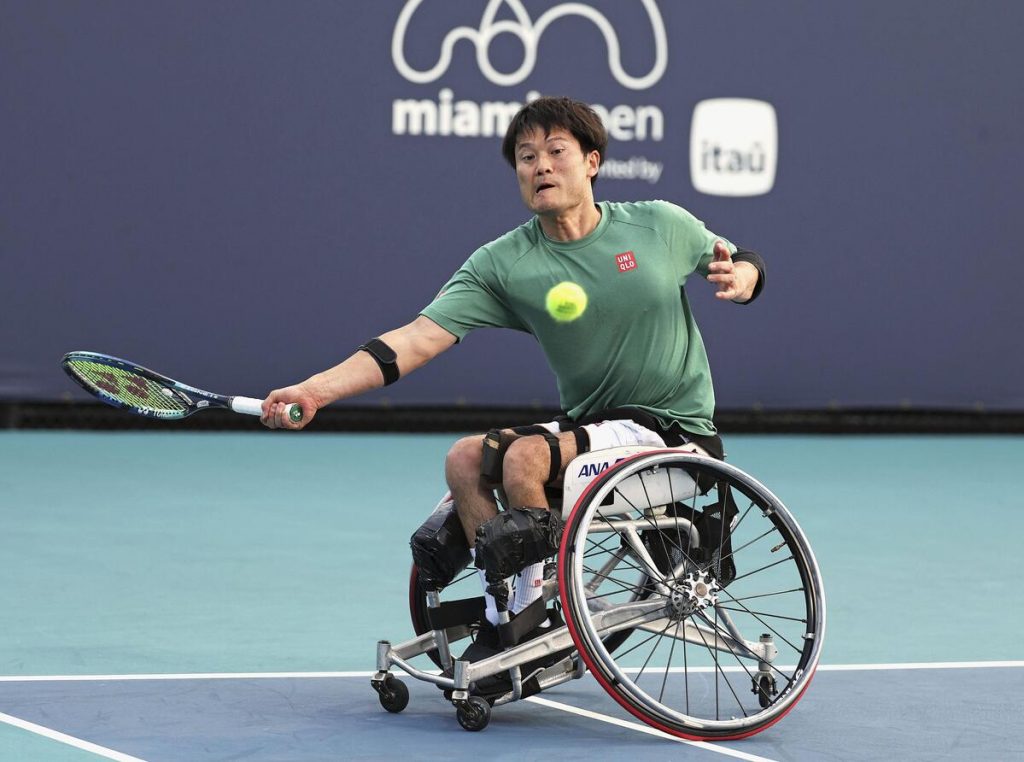
Tennis
Retired Legend Kunieda Wins Miami Open Title
Although he's been officially retired for a year, Shingo Kunieda made an impressive return to wheelchair tennis competition at the Miami Open.
Kunieda, the winner of 50 Grand Slam titles (28 singles, 22 doubles), defeated world No 1 Alfie Hewett 7-6 (7-3), 6-3, 6-3 in the men's final on Wednesday, March 27.
"This win is unbelievable because I retired last year," Kunieda said after the match. "So this was around a one-and-a-half-year break for me, and I beat [the] world No 1."
A day later, Argentina's Gustavo Fernandez and Kunieda faced Britain's Hewett and Gordon Reid in a doubles match, dropping it by a score of 6-2, 2-6, 9-11.
"I had a great time in doubles with my longtime partner @gustifernandez24," Kunieda wrote in a post on X (formerly Twitter).
He added, "We had three match points but couldn't take them, but it was fun."
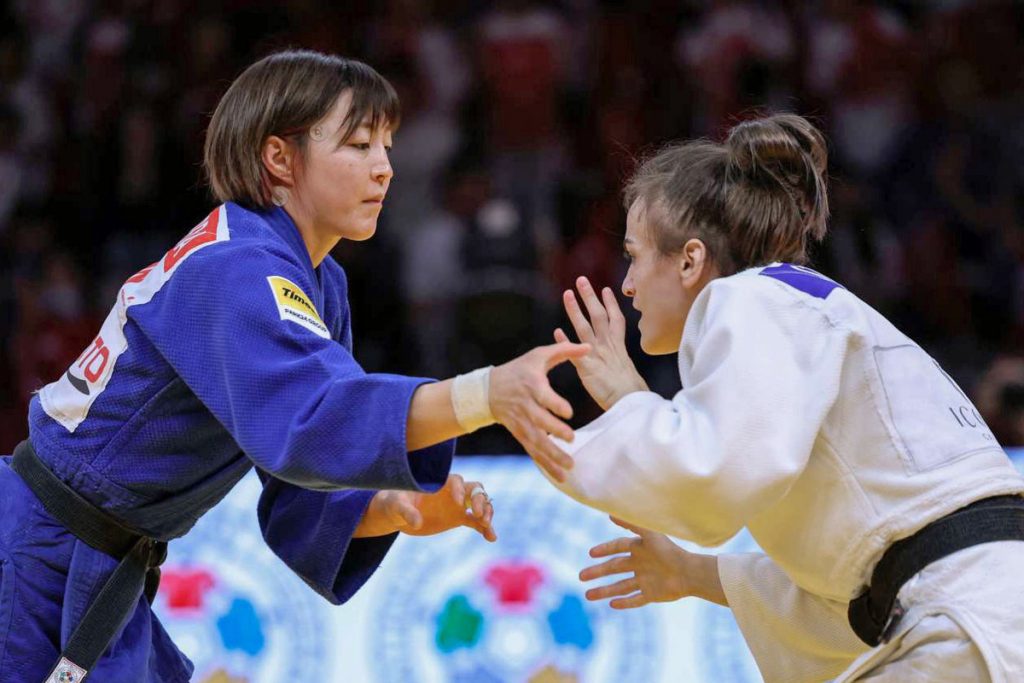
An Athlete's Voice
"There were many moments I felt I was in danger, but I'm happy I could get the win. I'll switch my mind, let the injury heal properly and prepare for the Olympics."
―Three-time world champion judoka Natsumi Tsunoda, speaking about her victory over Turkey's Sila Ersin in the women's 48-kg final at the Antalya Grand Slam in Turkey on Friday, March 29, Kyodo News reported. Tsunoda sustained an injury to her left knee in the tournament quarterfinals.
Author: Ed Odeven






